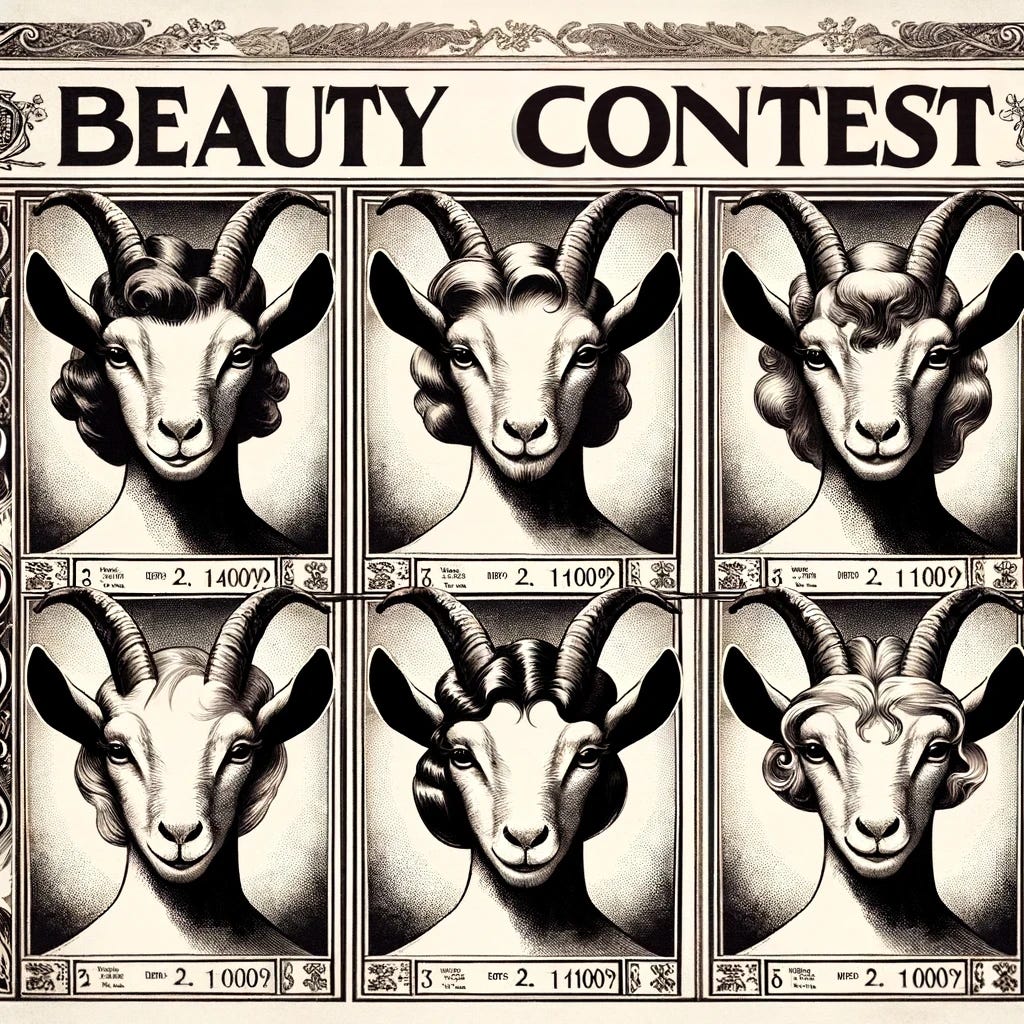It’s the mid-20th century, and you’re living in England. You open up your Times newspaper to catch up on the news of the world, and you see a full-page advertisement for a contest of sorts.
There are six pretty faces in six little squares, and at first glance, you reckon the contest is to determine who’s the most beautiful among them. Instead, the goal is to pick the face that the most people will choose as the most beautiful.
You’ve got until tomorrow’s post arrives to make your decision, and then you can mail your answer in to the company running the contest. If you win, you get a share of the cash everyone puts in, and if you choose wrong, you just lose your “investment” altogether.
What happens when you try to decide which face will win?
Sure, you could choose the face you personally think is most attractive, but you know that your tastes in beauty can be somewhat eclectic, so you’d probably want to pick someone else. Who would the largest number of people choose to be the prettie…
Keep reading with a 7-day free trial
Subscribe to Goatfury Writes to keep reading this post and get 7 days of free access to the full post archives.




